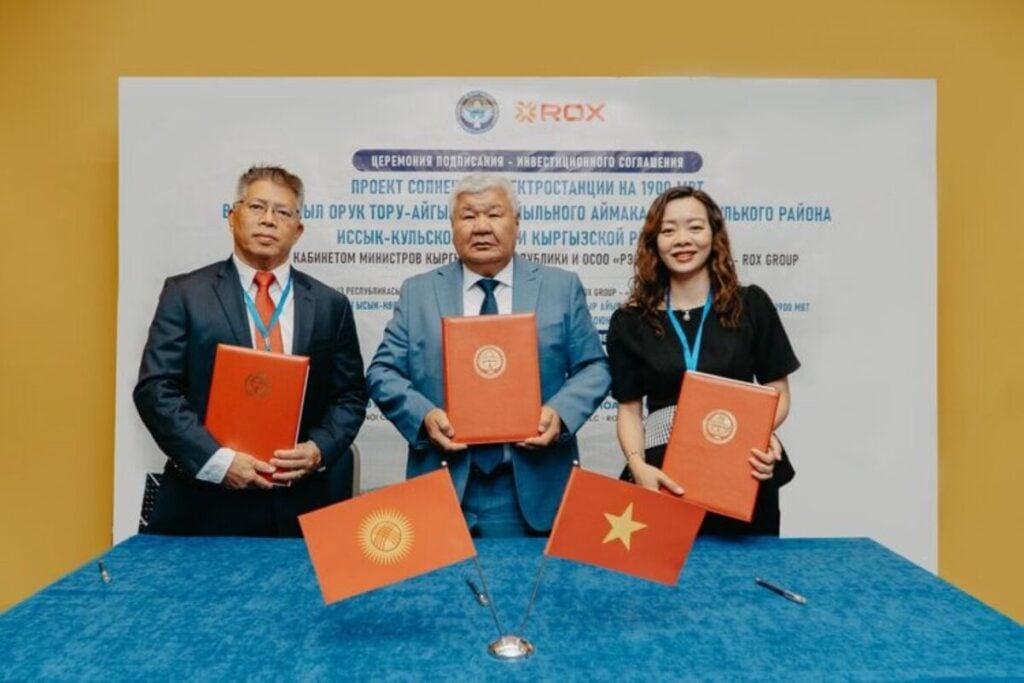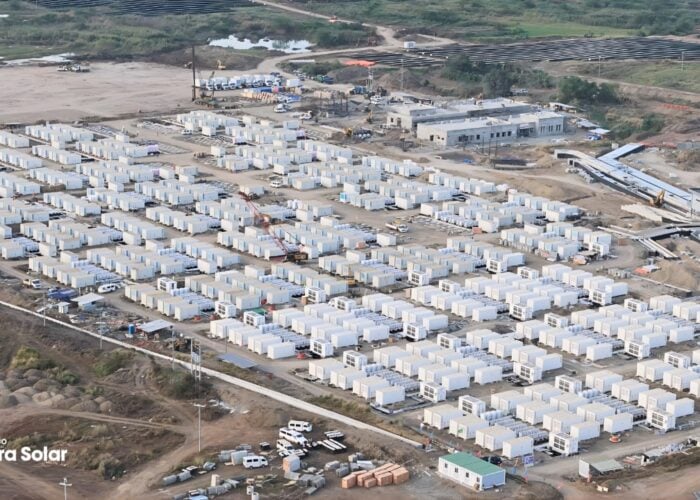
The Government of Kyrgyzstan has signed two investment deals with Vietnamese firms Rox Energy Global and RECA LLC for the development of a 1.9GW solar project in the village of Kyzyl-Uruk in Issyk-Kul region of Kyrgyzstan.
As a result of a bilateral agreement between the Minister of Energy, RECA LLC and Rox Energy Global, an investment agreement was signed for the project. Currently in its initial phase, the project is scheduled for completion in 2027 and will be financed through foreign investment. Once operational, it will be one of the largest solar projects in the region.
Try Premium for just $1
- Full premium access for the first month at only $1
- Converts to an annual rate after 30 days unless cancelled
- Cancel anytime during the trial period
Premium Benefits
- Expert industry analysis and interviews
- Digital access to PV Tech Power journal
- Exclusive event discounts
Or get the full Premium subscription right away
Or continue reading this article for free
During the meeting, the parties discussed prospects for renewable energy cooperation, focusing on the solar power project in the Kyrgyz Republic. The agreement meeting also covered land allocation, grid connection, and state support, the ministry said. The project will be funded through foreign investment.
Earlier this month, the Minister of Energy of the Kyrgyz Republic, Taalaibek Ibrayev, visited the Issyk-Kul region to review the initial preparatory work for the construction of the solar power plant.
According to the company, construction of the solar farm is underway with equipment delivered to the site, modular housing and offices installed, electricity setup in progress, and access roads being built. Land leveling will begin next to prepare for solar panel installation.
As of the end of last year, the International Renewable Energy Agency (IRENA) reported that Kyrgyzstan had 0MW installed solar capacity, highlighting the early stage of its solar market






